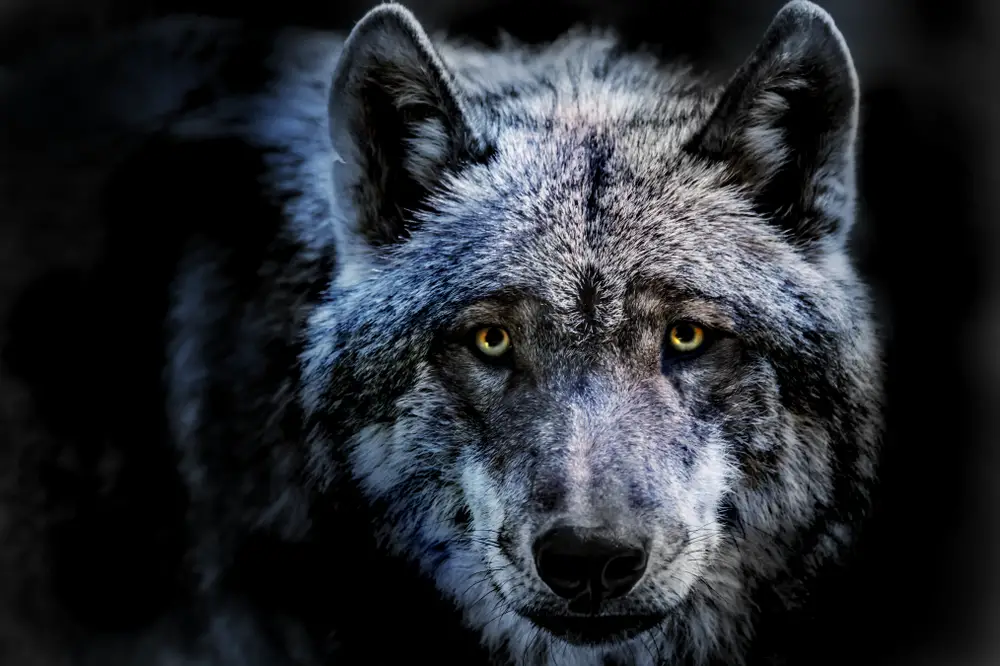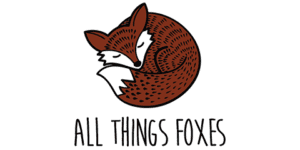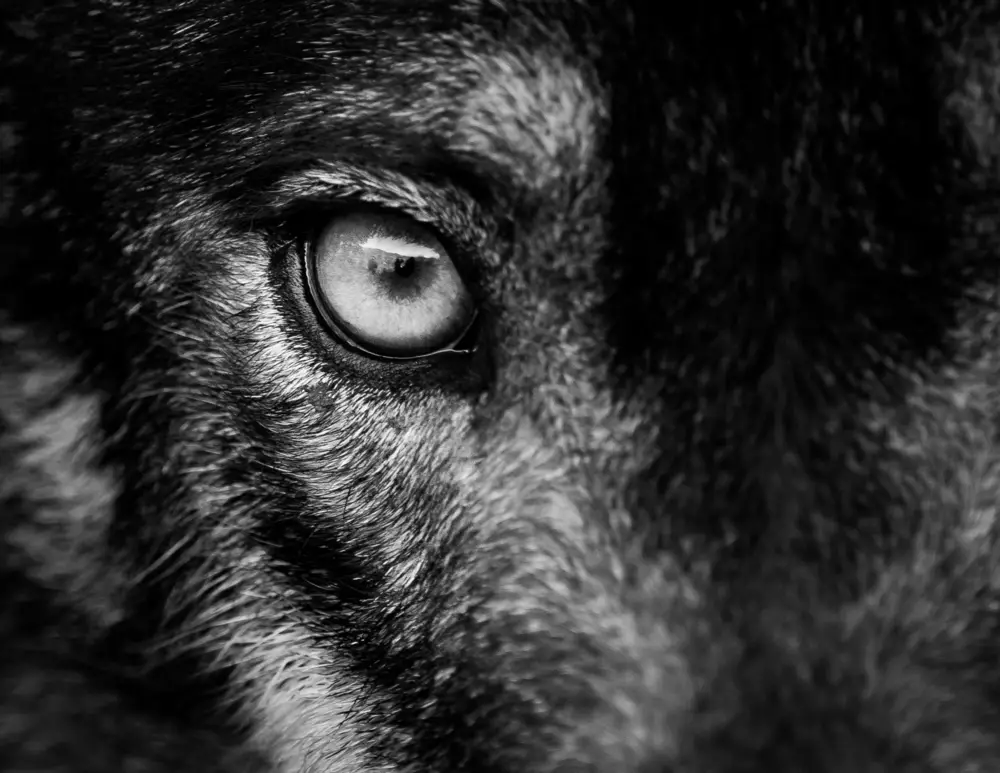Wolves are viewed in many places and cultures with grand symbolism and ideas that rotate around them. Wolves are often related to darkness, danger, magic, companionship, love, and more.
In many cultures, wolves are used as a symbol. One of the most famous cultures in which wolves have a lot of symbolism is in the Native American culture.
In the United States, despite the cultural changes in the last thousands of years, the symbolism of wolves has not strayed too far off what it once was before Columbus said to the New World.
So, now we must ask, what do wolves symbolize, what are their meanings in totems, as spirits, in our dreams, and what are wolves an omen of?
About Wolves
As we talk about wolves in this way, we are referring to the Gray Wolf. These are the wolves that most strongly inhabit North America.
They also inhabit a great deal of Russia, China, Reykjavík, Ukraine, as well as many more countries in the eastern world, and the Middle East.
The global wild wolf population was believed to be around 300,000 in 2003 and not of any concern to nature conservation.
These wolves do not only have a great deal of symbolism and meaning in our lives and cultures but they are also known to have had plenty of interactions with humans throughout history.
They have often been despised and hunted in pastoral communities due to attacks on livestock, but they are also very respected in some agrarian and hunter-gatherer societies.

Wolves are believed to be the ancestor of a majority of domestic dog breeds, and although wolves are feared by many, attacks on humans are mostly attributed to wolves suffering from rabies.
Wolves will rarely attack a person as wolves are often few in number near populated areas, and they generally fear humans due to their history with hunters, ranchers, and shepherds.
Knowing all this, aside from the fear and mysticism that comes with the natural gray wolf, what else do they mean to us?
Wolf Associations
One of the primary associations with wolves comes from their predatory standing. The predatory nature makes many associate wolves with danger and destruction.
This does also make wolves symbolism of the warrior, but in some cases also the symbol is the devil. The modern idea of ‘the big bad wolf’ corresponds to this.
Wolves were also often associated with witches and witchcraft, both in North Europe, and in Native American tribes. In Norse folklore, the witch Hyndla and the giantess Hyrrokin were both portrayed as using wolves as mounts instead of horses. In Navajo culture, wolves were often feared as witches in wolf’s clothing.
The ferocity of wolves is also mirrored again in Norse mythology, the God Odin has two wolves which accompany him named Geri and Freki, both names which mean ‘Ravenous’ or ‘Greedy one’.
Odin was said to often give all of his food to his wolves, and what he chose for himself was only wine, enough for his food and drink.
In Greek mythology, Apollo and Artemis were both raised by a she-wolf and around wolves as well. In Celtic mythology, wolves were symbolic of the perfect warrior, the instinctive forces of nature, and the survival of the fittest.
The wolf was seen as a guide, both in this life and the next.
In Slavic mythology, the wolf was seen as a mythological creature and is greatly linked to Balkan and Serbian mythology and cults.
It has a very important part to play in Serbian mythology, especially. However, in the Slavic, old Serbian mythology, wolves were used as a totem, and in Serbian epic poetry, wolves are symbols of fearlessness.
Even in modern times, the Chinese cultural view of the wolf still holds great power, and is seen as a possible secret weapon behind China’s many tech giants.
This comes from the ‘wolf spirit’, which speaks about a unique corporate culture that helped China’s tech giants to succeed at a rapid speed. It also reflects the ever-popular beliefs held among many young Chinese people that see working harder to be both the ultimate drive and the goal of life.
You could relate this to how wolves work very hard to survive as a team to become a dominant worldwide predator.
As you can see, wolves have a rich background in being symbolic of many things, from guardians to ravenous, dangerous beasts, to being warriors and perfect forces of nature.
In every culture that has seen a wolf, these animals were symbolized and were often involved in stories of mythology, folklore, religion, and more.
Wolves in Totems
Wolves as represented in totems are representative of a lighter side of the wolf symbolism. Instead of darkness, destruction, and predatory instincts, totem wolves are viewed more as the ‘pack mentality’.
This means representations of loyalty, intuition, intelligence, independence, compassion, and communication, as well as cunning.
When totem wolves are representative of a person, they belong to those who understand the depth of passion that wolves belong to. In this sense, wolves are representative of deep faith and profound understanding.
Wolves are also in possession of high intellect, as can be seen in their hunting teamwork.
In history, totem wolf symbols appear in Rome. Legend says the two founding brothers were raised and suckled by a she-wolf, Lupa. She was said to nurture Roman heroes, so they would be fearless and cunning.
In Norse mythology, the wolf is a victory symbol when ridden by Odin. They were warriors and would allow Odin the best hunting grounds and knowledge of the people. They were also among many other creatures who aided Valkyries in transporting warriors to Valhalla.
Among Celts, wolves were a source of lunar power. In lore, it says that the wolf would hunt down the sun and gobble it up, so the moon’s power would come forth.
Whereas in Asia, wolves guard the doors that allow entrance to heavenly, celestial realms. In Japan, wolves are considered to be lucky and offerings of rice would be offered to Kamidana, the wolf spirit of nature to hunt down pests that disturbed crops.
Wolves and Spirits
When considering wolf associations in spirits, we often refer to wolves as spirit animals. In this sense the wolf comes to support and teach us about matters of balance, self-control, power, and our innate animal instincts.
Wolves in this sense are seen as great examples of standing in the seat of one’s own power. They let predators know that they can fight to the death, however, they will rarely initiate combat unless they have to do so. This does not apply to prey, of course.
Humans are animals, and we often forget this. Like every other animal has gifts from nature that are innate. Wolves remind us of the spiritual sense of running with a pack, the community spirit and liberation when you are alone.
When seen in this way, a wolf’s howl will help you to find others of like-mindedness. And will also help you to feel comfortable in letting your position be known.
Wolves in Dreams
In dreams, wolves have the symbolism of being majestic, beautiful, and wise. However, they are also seen as sly, insatiable, and evil. Their meaning in dreams can be good or bad.
Dreaming about wolves can mean that you must face a fear, it can be a sign to look inside yourself and ask what you are afraid of, and how you can face this situation, or control it.
Although, this does depend largely on the overall dream of course, not every dream about wolves will be in relation to fear, or facing fears.
Wolves in your dreams can also be telling you of a time in the future where confidence and composure is essential. You may find yourself wishing for some time alone so that you can return to a difficult situation with a new and grander perspective.
If your dream is that you are being thrown to the wolves, this could be a symbol of a wolf in sheep’s clothing. Wolves may also appear if you need the power of your pack to face a situation.
Think of what wolves are associated with and then relate it to yourself, you will find the answer.
Wolves and Omens
For a very long time, wolves and humans have existed together, and omens and notions have been created around the meaning of the wolf.
This can be seen with the term ‘wolf at the door’, which would suggest isolation, greed, and deceptiveness. It represents a desire to invoke protection against poverty, hunger and bad omens.
If you see wolves in magazines, on TV, or as a symbol, and you are wondering what this can be an omen of, it can tell you to be careful.
However, the term ‘lone wolf’ means warrior or hero who works alone. This could be an omen of a need to be strong soon. Again, assess the situation and apply the most relevant meaning.

